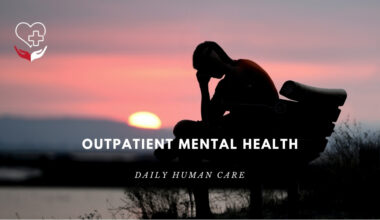This post by Daily Human Care is all about Battling Addiction. Here we’ll tell you how to keep on the road to recovery. Let’s start!
Table of Contents
What to Do if You’re Battling Addiction
Addiction is a powerful foe that has the power to trap anyone in its crushing embrace. It affects people from all walks of life and has no bounds. The road to recovery can appear to be an insurmountable obstacle if you or someone you know is struggling with addiction. Nevertheless, it is possible to release oneself from addiction and set off to a better, more promising future with the correct support, motivation, and guidance.

Understanding Addiction
Before delving into the specific procedures for recovery, it is necessary to have a solid understanding of what addiction entails. An addiction is a chronic disorder characterized by the compulsive use of substances or engaging in actions despite harmful effects. Addiction is a complex condition. Because it frequently involves physical and psychological reliance, breaking free of its grip can be extremely difficult.
Recognizing the Need for Help
Recognizing that you have a problem and seeking assistance is the first and most important step to recovery. Denying that they have a problem is one of the most prevalent obstacles that keep people from seeking help. It is necessary to admit that there is a problem and to realize that a solution is attainable. If you aren’t sure what to do, you might want to talk to a reliable friend or family member who can provide support and advice.
Seeking Professional Assistance
Once you’ve realized that you may need help, you can seek it from various resources including a professional substance abuse hotline from a reliable source. The healing process includes professional therapy and counseling as essential steps. You can obtain the methods and techniques required to defeat addiction from professionals. Other possibilities include outpatient counseling, inpatient therapy, and support groups.
The root causes of addiction, which frequently involve trauma, mental health problems, or environmental factors, can be addressed with professional guidance. You will likely recover successfully if these professionals can customize a treatment strategy for you.
Building a Support Network
The recovery process can be challenging, so it is necessary to surround oneself with a strong support network. Make contact with friends and family members who can provide you with encouragement, compassion, and empathy. Participating in a support group like Alcoholics Anonymous or Narcotics Anonymous, for example, might be another very helpful step to take. These organizations offer a secure environment where members can talk about their experiences, listen to others’ perspectives, and draw inspiration from their own.
Setting Realistic Goals
The path to recovery is not a formula that can be applied universally. You must establish attainable goals for yourself, taking into account the specific obstacles and conditions you face. These objectives must be explicit, measurable, and doable. The road to recovery can be broken down into smaller, more manageable steps, allowing you to sustain a sense of progress and accomplishment throughout the journey.
Developing Coping Strategies
Managing cravings and triggers is one of the major obstacles to recovery from addiction. The development of good coping mechanisms is necessary to prevent recurrence. These solutions can include activities such as mindfulness training, exercises designed to reduce stress, and healthy distractions such as physical activity or creative hobbies. Counseling can assist you in determining the causes of your difficulties and developing individualized plans for overcoming them.
Creating a Healthy Lifestyle
Addiction frequently has a negative impact on both a person’s physical and mental health. As you progress toward recovery, you should concentrate on developing better habits in your daily life. This involves maintaining a healthy weight by eating a balanced diet, being physically active regularly, and obtaining enough sleep. These adjustments to one’s way of life can help mend the wounds left by addiction and improve one’s health.
Avoiding High-Risk Situations
Learning to avoid high-risk situations that could lead to a relapse is an important component of long-term sobriety maintenance. This can mean severing ties with past pals who enable your addiction or avoiding environments in which you previously used narcotics. For sustained success in recovery, it is essential to recognize these triggers and take steps to reduce the amount of time spent exposed to them.
Conclusion
The path to addiction rehabilitation is difficult, but it is worth taking. The first steps toward reclaiming your life from the grip of addiction are acknowledging the need for help, seeking professional assistance, establishing a support network, setting realistic goals, developing coping mechanisms, developing a healthy lifestyle, avoiding high-risk situations, and remaining dedicated to recovery. Remember that you are not alone who is struggling with addiction, drug-free future is attainable with the correct services and assistance.




